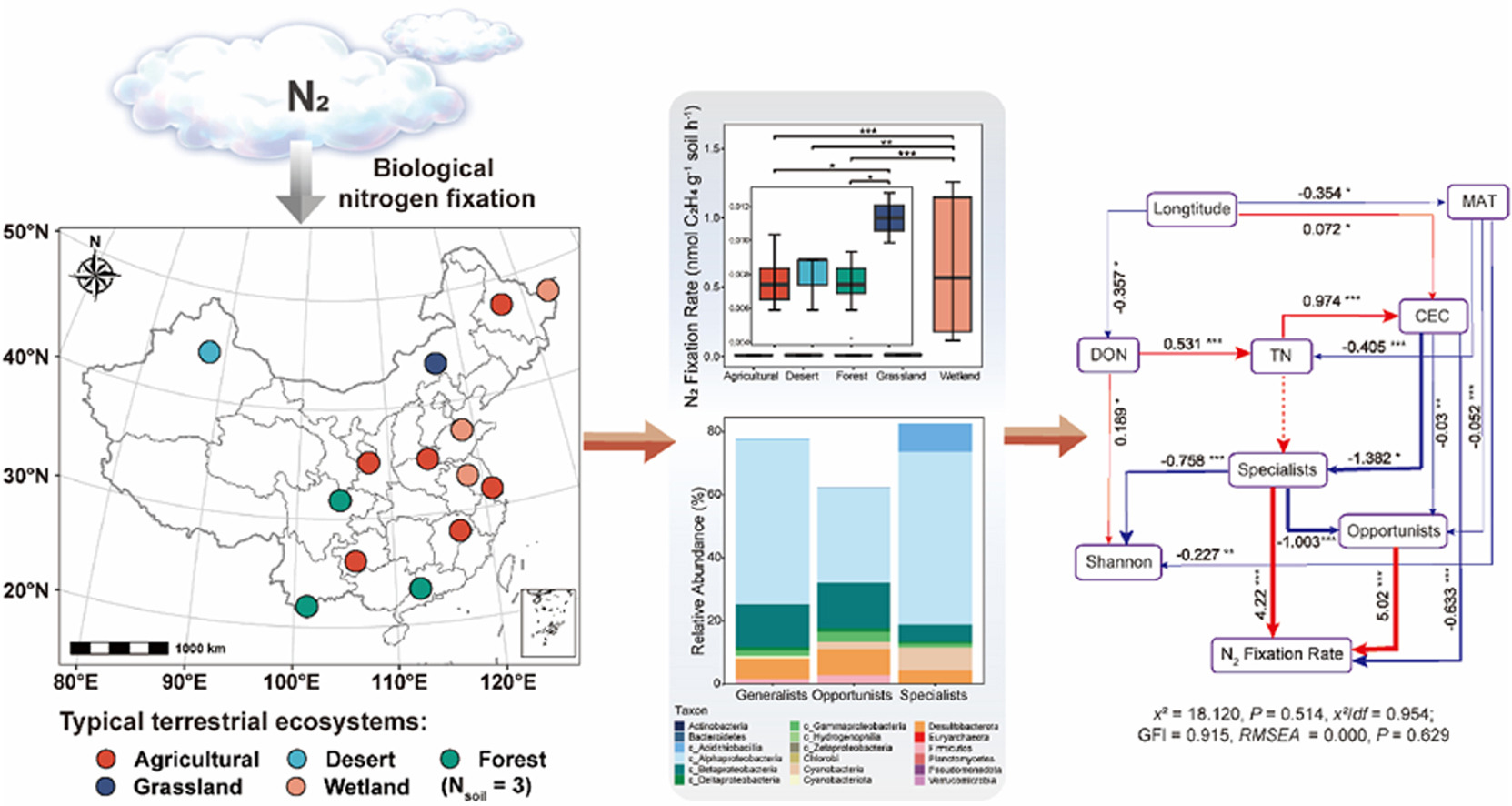Biological nitrogen fixation and the role of soil diazotroph niche breadth in representative terrestrial ecosystems
Biological nitrogen fixation (BNF) driven by diazotrophs is a fundamental process underpinning the primary productivity of terrestrial ecosystems and plays a pivotal role in the global nitrogen cycle. However, the relationships between BNF function and soil diazotroph taxa with different niche breadths remain unclear. Prof. Ying TENG and his team investigated the N2 fixation rate and community structure of diazotrophs in soils collected from representative terrestrial ecosystems in China—agricultural, desert, forest, grassland and wetland—and explored the specific contributions of groups of diazotrophs with different niche breadths to the N2 fixation rate. Among all the ecosystems, the N2 fixation rate, nifH gene abundance and diazotroph diversity were highest in the wetland ecosystems. The N2 fixation rate was significantly (P < 0.05) positively correlated with diazotroph diversity, indicating a relationship between microbial community diversity and ecosystem functionality. Furthermore, the N2 fixation rate and Shannon index were significantly (P < 0.05) positively correlated with the abundances of diazotrophs classified as specialists and opportunists. Structural equation modeling indicated that geographical factors and climatic factors affected the abundance of specialists and opportunists directly or indirectly through soil physicochemical properties, which in turn affected N2 fixation rates. Collectively, these valuable insights into the intrinsic relationship between nitrogen-fixing function and groups of soil diazotroph taxa with different niche breadths advance our understanding of BNF across terrestrial ecosystems.
Fig. Graphical abstract
Contact:
Ying Teng
Institute of Soil Science, Chinese Academy of Sciences
Email: yteng@issas.ac.cn
Web: http://english.issas.cas.cn/

